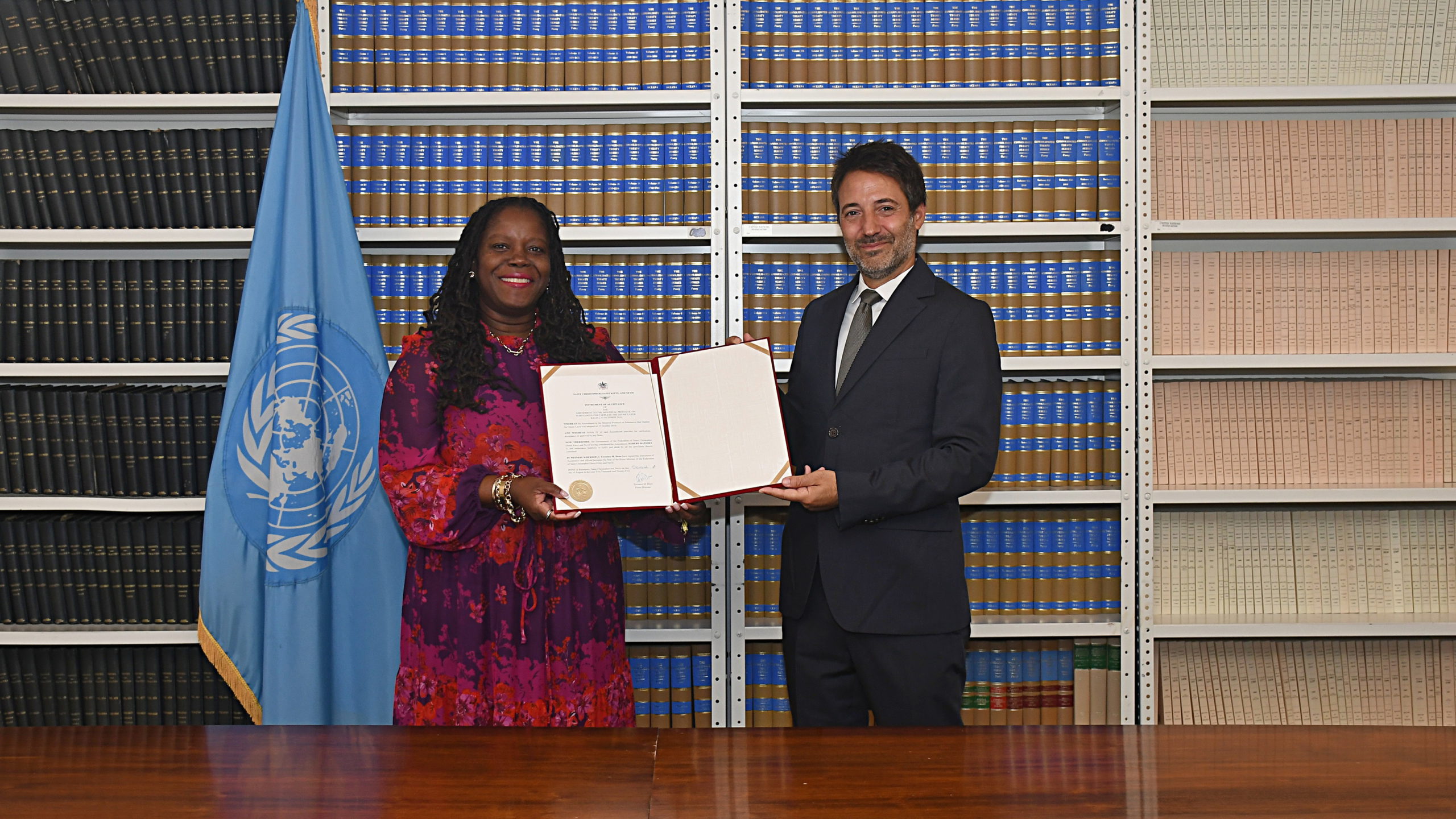St. Kitts and Nevis Ratifies Kigali Amendment, Reinforcing Commitment to Climate Change Mitigation
The deposit of the instruments of acceptance for the Kigali Amendment by St. Kitts and Nevis at the United Nations Treaty Office on August 29, 2025, signifies a critical step in the global fight against climate change and underscores the nation’s unwavering commitment to multilateralism. This seemingly small act carries immense weight, symbolizing the collective responsibility of nations, big and small, to address the existential threat posed by a warming planet. It is particularly poignant coming from a small island developing state (SIDS) like St. Kitts and Nevis, which, while contributing minimally to global greenhouse gas emissions, bears the brunt of climate change’s devastating consequences. The ratification of the Kigali Amendment serves as a beacon of hope, demonstrating that even the most vulnerable nations are actively engaging in solutions and advocating for a sustainable future.
The Kigali Amendment, an extension of the landmark Montreal Protocol, specifically targets hydrofluorocarbons (HFCs), potent greenhouse gases commonly used in refrigeration and air conditioning. While HFCs do not deplete the ozone layer like their predecessors, chlorofluorocarbons (CFCs), they possess a significantly higher global warming potential, trapping thousands of times more heat than carbon dioxide. This makes their reduction crucial in the fight against climate change. The Amendment mandates a phased reduction of HFC production and consumption, aiming for an 80-85% decrease by 2047. This ambitious target, if achieved globally, is projected to prevent up to 0.5 degrees Celsius of warming by the end of the century, a significant contribution towards mitigating the worst impacts of climate change.
For St. Kitts and Nevis, the ratification of the Kigali Amendment is not merely a symbolic gesture; it represents a tangible commitment to safeguarding its future. As a SIDS, the nation is acutely vulnerable to the impacts of climate change, including rising sea levels, intensifying hurricanes, and increasing ocean temperatures. These threats pose an existential risk to the island nation, jeopardizing its very survival. By embracing the Kigali Amendment, St. Kitts and Nevis demonstrates its proactive approach to climate action, recognizing that mitigating global warming is essential for its own national security and the well-being of its citizens.
The nation’s commitment to addressing climate change extends beyond the Kigali Amendment. St. Kitts and Nevis has embarked on a broader path towards energy resilience and sovereignty through its Sustainable Island State Agenda (SISA). Championed by Prime Minister Dr. Terrance Drew and his administration, and spearheaded by the Minister of Sustainable Development, Environment, and Climate Action, Dr. Joyelle Clarke, SISA outlines a comprehensive strategy for tackling climate change and building a sustainable future. This includes developing national strategies, strengthening institutional capacity, and promoting innovation in renewable energy and climate-smart technologies. The ratification of the Kigali Amendment aligns perfectly with SISA’s objectives, further solidifying the nation’s dedication to climate action.
The Kigali Amendment’s effectiveness lies in its global reach and phased approach. It requires both developed and developing countries to participate in the HFC phase-down, recognizing the shared responsibility of all nations in addressing climate change. The phased approach allows for a gradual transition to alternative technologies, providing industries with time to adapt and innovate. This fosters the development and adoption of more climate-friendly refrigerants and air conditioning systems, driving technological advancements and market transformation. The Amendment, therefore, not only mitigates climate change but also stimulates innovation and creates economic opportunities in the green technology sector.
The ratification by St. Kitts and Nevis adds to the growing momentum behind the Kigali Amendment, demonstrating its global appeal and the increasing recognition of its importance in the fight against climate change. It serves as an inspiration to other nations, particularly SIDS, to join the global effort and contribute to a more sustainable future. By acting collectively and decisively, the international community can achieve the ambitious goals of the Kigali Amendment and effectively mitigate the escalating threat of climate change. The commitment of St. Kitts and Nevis, while seemingly small in the grand scheme of global climate action, represents a significant step forward and reinforces the power of multilateralism in addressing shared challenges. It underscores the crucial role that every nation, regardless of size or contribution to greenhouse gas emissions, plays in safeguarding the planet for future generations.
Share this content:












Post Comment